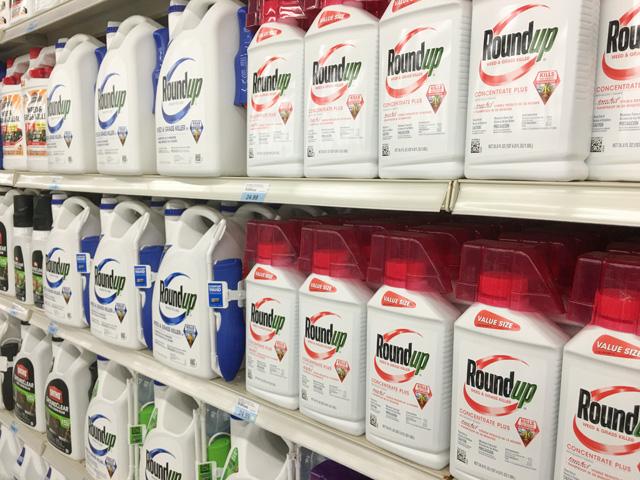Bayer Settles Roundup Advertising Case
Bayer Settles Claims of Roundup False Advertising in New York, Disputes Studies
LINCOLN, Neb. (DTN) -- Bayer settled with the state of New York on allegations the company falsely advertised the glyphosate-based Roundup, agreeing to pay $6.9 million in fines and removing various claims from advertisements in the state.
In the settlement announced by New York Attorney General Letitia James, the state uses a variety of studies that purport to show glyphosate is dangerous to wildlife -- despite claims made by Bayer the herbicide is safe.
Those studies point to alleged harm to bee populations and other animal species from the use of Roundup on lawns and gardens.
Although Bayer has started to remove glyphosate-based Roundup for lawn and garden use from the shelves and intends to use a different active ingredient, the company continues to stand by the efficacy and safety of glyphosate. In addition, the company said it plans to continue selling glyphosate-based Roundup for agricultural use.
"We are pleased to resolve this matter, which focused on advertising practices and made no findings regarding the safety of Roundup products and no scientific conclusion that they have caused harm to the environment including pollinators or aquatic species," the company said in a statement to DTN.
"As the assurance of discontinuance recognizes, Monsanto disagrees with the conclusions and import of the studies the attorney general relied upon and supplied the AG's office with recent studies that more accurately reflect the current state of the relevant science."
The settlement dates back to a 1996/1998 agreement the company had with the state to discontinue certain advertising claims.
P[L1] D[0x0] M[300x250] OOP[F] ADUNIT[] T[]
"Under the current settlement, Monsanto neither admits nor denies these allegations," Bayer said in the statement.
"Neither the prior AOD nor the current investigation were related to personal-injury cases. While Bayer agrees to make a payment to resolve this matter, all those funds will be allocated to prevent, abate, restore, mitigate, or control prior or ongoing water, land, or air pollution affecting pollinators, threatened or endangered aquatic species, and their habitats."
The New York attorney general's office launched an investigation in 2020, looking at whether the company violated the 1996 agreement.
The attorney general asked the company in 2020 to substantiate advertising claims made about Roundup.
Among the many advertisements identified by the state was an Oct. 1, 2019, YouTube video that asserted, "Roundup weed and grass killer products won't harm anything but weeds." The state said in the settlement it identified "at least five" examples of other videos that made the same claims.
"Bayer also maintains a website that claims that glyphosate allows farmers, by virtue of reduced tillage, to 'protect the environment for insects, birds, and wildlife' including 'pollinator species,' with no indication as to what actual product formulations (and what inert ingredients) are included in these applications," the settlement said.
The state's Consumer Protection from Deceptive Acts and Practices prohibits false and misleading advertising in the state.
James said in a statement that pesticides can "cause serious harm" to human health and the environment.
"It is essential that pesticide companies -- even and especially the most powerful ones -- are honest with consumers about the dangers posed by their products so that they can be used responsibly," she said.
"Once again, Monsanto and the company's current owner, Bayer, made false and misleading claims about the safety of their products, but we will not allow them to get away with endangering our environment."
Read more on DTN:
"Bayer Makes Case on Roundup Labels," https://www.dtnpf.com/…
Todd Neeley can be reached at todd.neeley@dtn.com
Follow him on Twitter @DTNeeley
(c) Copyright 2023 DTN, LLC. All rights reserved.






